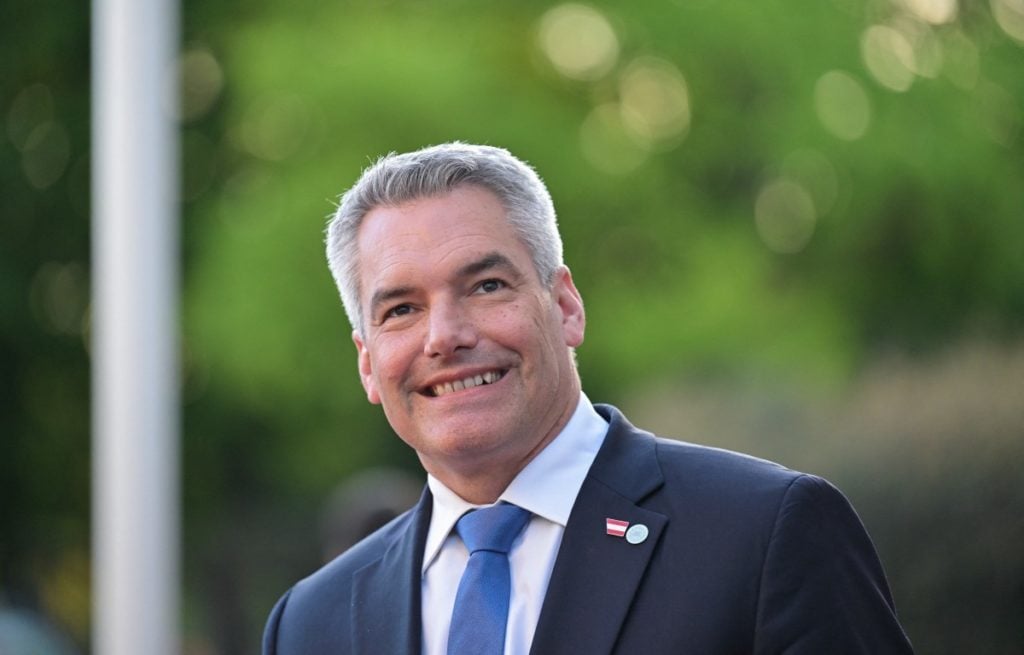The number of people seeking asylum in Austria has dropped compared to last year. However, Austria faces challenges due to the changed profile of asylum seekers.
Around 53 percent of applicants are minors, and the proportion of women seeking asylum has also risen significantly, reported Der Standard. Austria is now experiencing the “family reunification” phenomenon. In other words, when family members, such as spouses and children, join those who have been granted asylum or refugee status in Austria.
Stricter family reunification processes
The challenges due to an increase in family reunification applications have provoked heated discussions in Austria.
Under Austrian law, asylum seekers are generally permitted to bring their spouses and minor children with them. To confirm the family relationship, they need to present various documents and if there is any doubt about a relationship, the authorities may perform a DNA test to determine the blood relationship and rule out fraud.
DNA tests are already taking place in Austria, but the country’s Chancellor Karl Nehammer from Austrian People’s Party, ÖVP, recently announced that he wants to start using them more frequently and “at the slightest doubt”, reported Der Standard. “We will restrict family reunification through strict checks”, Nehammer said.
At the same time, Austria also plans to intensify the use of specially trained document examiners and strengthen security checks on family members by the security authorities.
The Green Party, Die Grünen, and The Freedom Party, FPÖ, has criticised Nehammers proposal.
The Green Party suggested that it showed a lack of legal understanding since the tests are already taking place.
The Freedom Party questioned the credibility of the proposal and emphasised that the call for stricter rules was an attempt to manipulate public opinion, reported Austria Presse Agentur.
Why is there a demand to introduce stricter controls?
The Interior Ministry registered around 6,900 asylum applications in the first quarter of 2024. Of these, 45 percent were made by applicants who had received an entry permit as part of the Austrian family reunification programme. In the previous year as a whole, the proportion was 16 percent, reported DPA International.
Due to the increasing family reunification applications, schools in Austria, especially in Vienna have started to face challenges, according to Der Standard. During the last month, 350 children and adolescents of school age arrived to Vienna through family reunification.
The schools are reported to struggle with the large number of new students, already affected by around 4,000 Ukrainian students who came to Vienna due to Russia’s attack in February 2022. The city is now planning to build 45 new container classrooms in order to cope better with the situation.
Vienna is also facing a lack of affordable housing for those families who are currently coming to Austria due to the family reunification.

How does family reunification work?
If a foreigner has been granted asylum status in Austria, family members can apply for entry permits at an Austrian representation authority abroad within three months of this status being granted, according to the Federal Office for Immigration and Asylum.
If approved, they can travel to Austria to apply for asylum through the family procedure and receive the same protection status as the reference person.
However, if the application is submitted after three months, they have to also provide proof of adequate accommodation, health insurance, and income.
Family members include:
- Minor unmarried children.
- Spouses, provided that the marriage already existed before entering the country.
- Registered partners, provided that the partnership already existed before entering the country.
- The legal representative (custodian) of minor unmarried children, provided that this representation already existed before entering the country.
READ NEXT: Border centres and ‘safe’ states: The EU’s major asylum changes explained



 Please whitelist us to continue reading.
Please whitelist us to continue reading.
Member comments